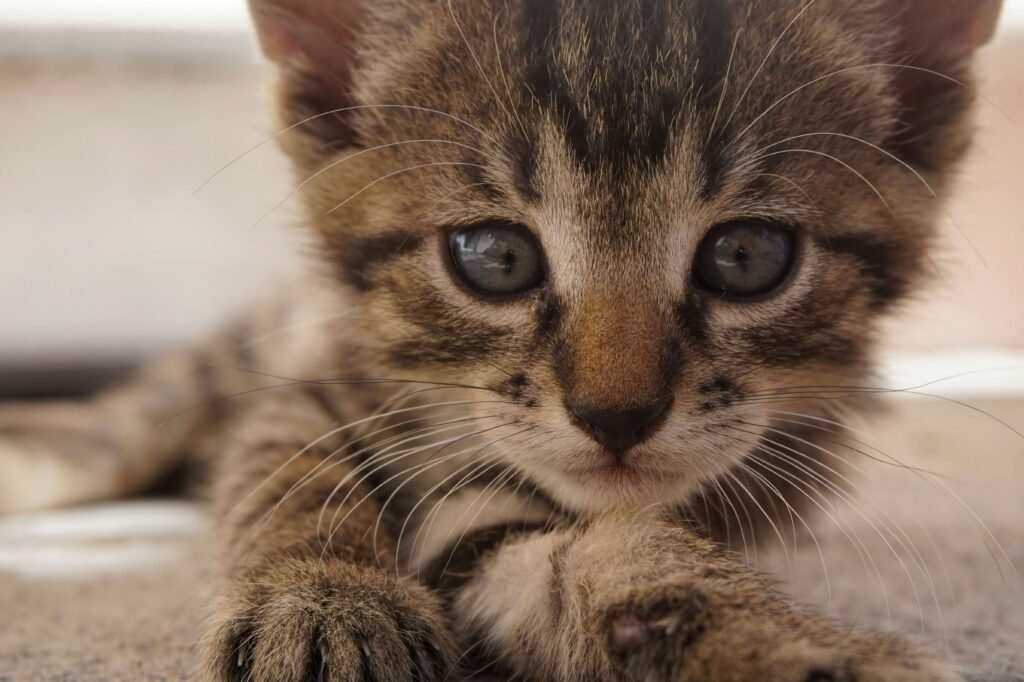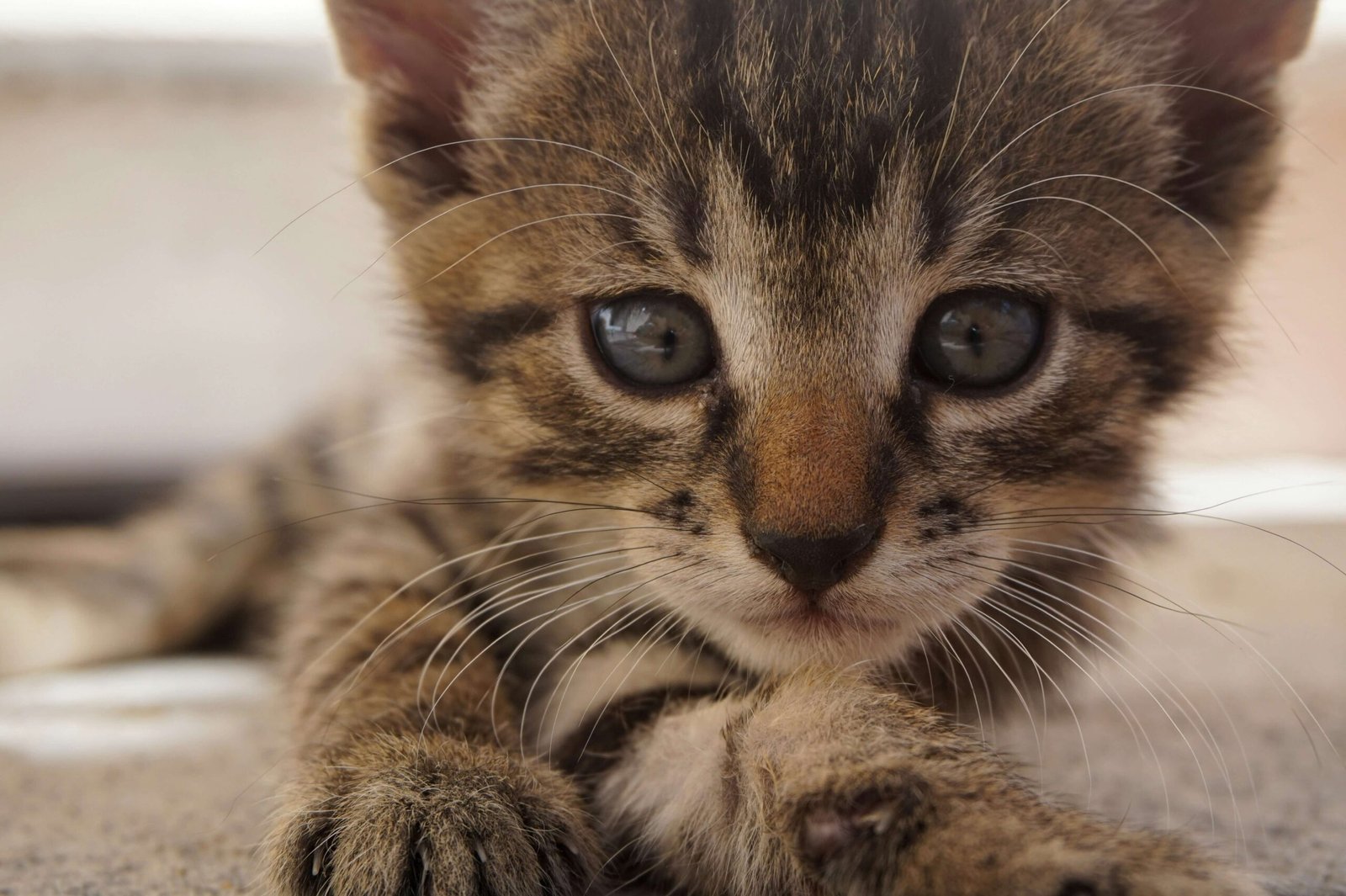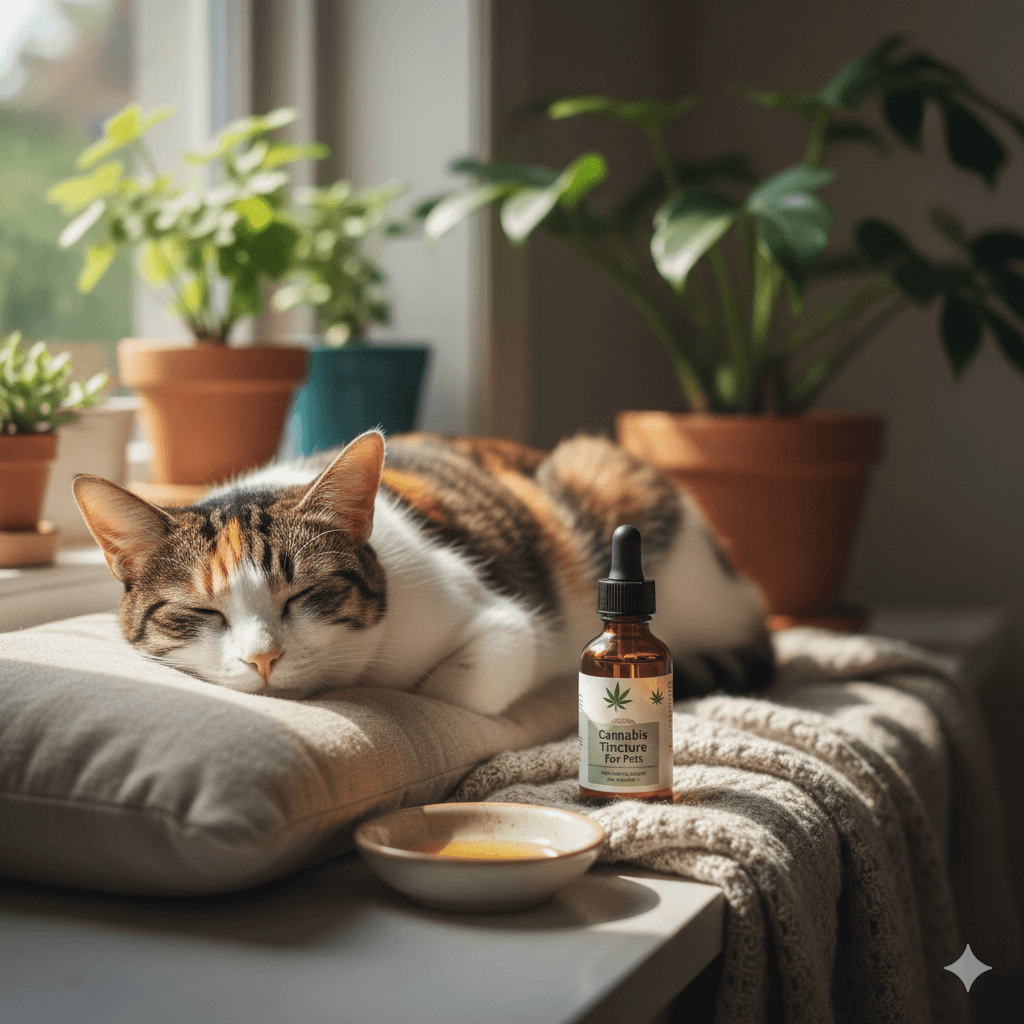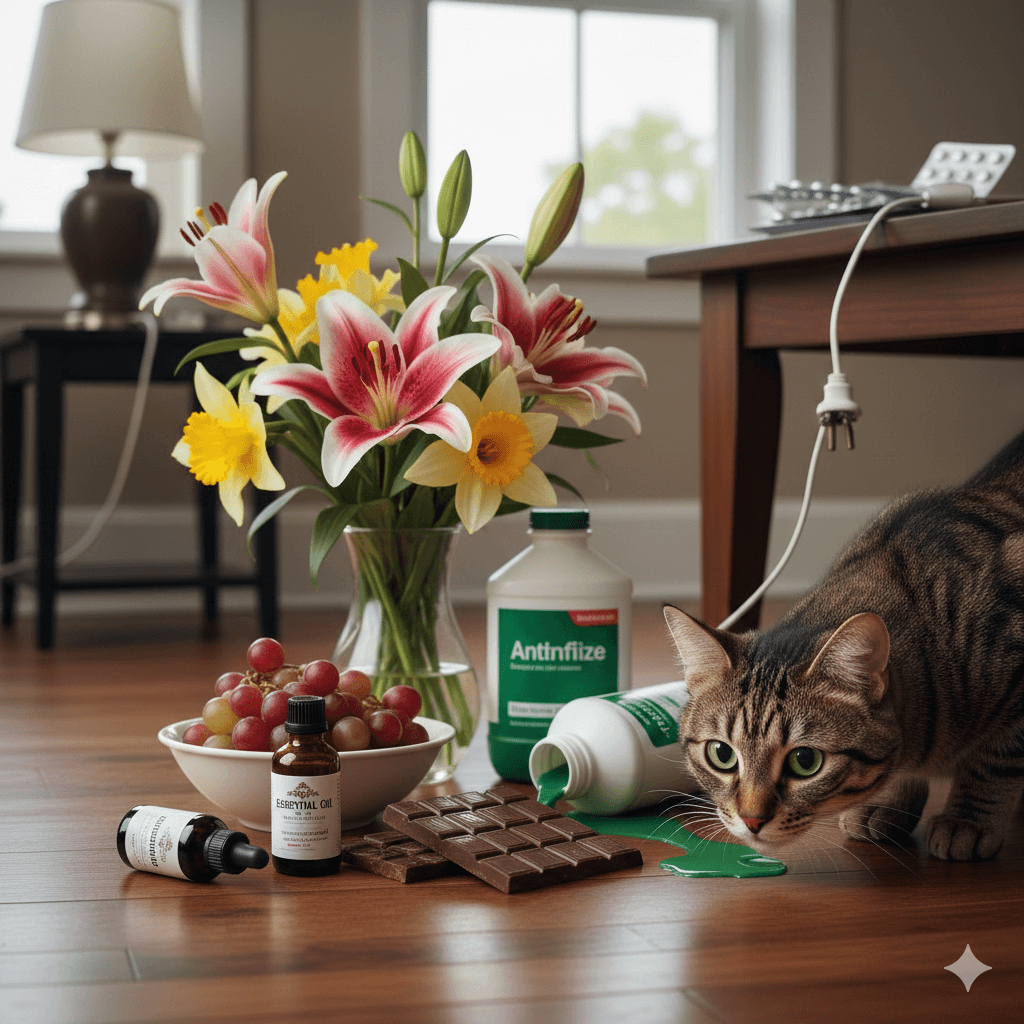Understanding Why Your Cat Has Scabs on Its Neck
Cats are naturally curious and playful creatures, but sometimes their adventurous spirit can lead to unexpected health issues. One common concern that cat owners may encounter is the presence of scabs on their feline friend’s neck. These small, crusty patches can be alarming at first glance, but they often have straightforward explanations. Whether it’s due to excessive scratching, allergies, or an underlying medical condition, understanding the root cause is essential for your cat’s well-being. In this blog post, we’ll explore possible reasons behind these scabs, how you can identify them, and what steps you can take to ensure your furry companion stays happy and healthy.
Common Causes of Scabs on a Cat’s Neck
When you notice scabs forming on your cat’s neck, it’s natural to wonder what might have caused them. Below is a list of potential triggers along with brief explanations to help you better understand the situation.
Excessive Scratching:
Cats scratch themselves as part of their grooming routine, but excessive scratching can damage their skin and lead to scab formation. This behavior could indicate irritation or discomfort in the area.Flea Infestations:
Fleas are notorious for causing intense itching in cats. When left untreated, flea bites can result in raw, irritated skin that develops into scabs over time.Allergic Reactions:
Cats can develop allergies to food, environmental factors like pollen, or even certain types of bedding materials. Allergies often manifest as skin irritation, leading to scratching and subsequent scabbing.Infections:
Bacterial or fungal infections can compromise your cat’s skin health, making it more prone to injuries and slow healing processes. These infections may also contribute to scab formation.Behavioral Issues:
Stress, anxiety, or boredom can sometimes drive cats to excessively lick or bite their own skin. Over time, this habit can create open wounds that heal into scabs.
While identifying the exact cause requires careful observation, recognizing these possibilities is the first step toward addressing the issue effectively.
Signs That Indicate Your Cat Needs Veterinary Attention
If your cat has scabs on its neck, there are specific signs that suggest professional intervention may be necessary. Here’s a breakdown of symptoms to watch out for:
Persistent Itching:
If your cat continues to scratch relentlessly despite your efforts to soothe its skin, it could signal a deeper problem requiring veterinary care.Redness and Swelling:
Inflamed or swollen areas around the scabs may indicate an infection or allergic reaction that needs prompt treatment.Hair Loss:
Significant hair loss near the affected area could point to chronic scratching or an underlying dermatological issue.Changes in Behavior:
A normally active cat becoming lethargic or showing signs of distress might mean the scabs are causing significant discomfort or pain.Odor from the Affected Area:
An unusual smell emanating from the scabs could signify an advanced infection or other serious complications.
Paying close attention to these signs will not only help you gauge the severity of the issue but also ensure timely action to prevent further complications.
Check this guide 👉Understanding Cat Chin Mites vs Acne: Best 7 Expert Tips!
Check this guide 👉Can You Use Dog Flea Shampoo on Cats? Best 7 Health Tips!

Possible Causes of Scabs | Preventive Measures |
|---|---|
Flea infestations | Use regular flea prevention products. |
Allergies | Identify and eliminate allergens. |
Excessive scratching | Provide enrichment toys to reduce stress. |
Skin infections | Maintain good hygiene practices. |
Behavioral problems | Consult a vet for behavioral therapy options. |
Home Remedies to Soothe Your Cat’s Skin
Before rushing to the vet, there are several home remedies you can try to alleviate your cat’s discomfort. Keep in mind that these solutions work best for mild cases and should never replace professional advice.
Coconut Oil Application:
Applying a small amount of organic coconut oil to the affected area can moisturize the skin and promote healing.Oatmeal Baths:
Oatmeal-based shampoos or baths can calm irritated skin and reduce inflammation caused by allergies or dryness.Aloe Vera Gel:
Pure aloe vera gel (free from additives) can soothe minor skin irritations and speed up recovery.Dietary Adjustments:
Adding omega-3 fatty acids to your cat’s diet through fish oil supplements can improve overall skin health.Regular Grooming:
Keeping your cat’s coat clean and free of tangles reduces the risk of skin irritation and prevents excessive scratching.
These remedies can provide temporary relief while you investigate the underlying cause. However, always consult your veterinarian before introducing new treatments.
Preventing Future Scab Formation
Prevention is key when it comes to maintaining your cat’s skin health. By adopting a few simple habits, you can minimize the chances of scabs reoccurring.
Routine Checkups:
Schedule regular visits to the vet to catch any potential issues early on.Parasite Control:
Ensure your cat receives consistent flea and tick prevention treatments throughout the year.Environmental Management:
Keep your home clean and free of allergens such as dust mites or mold spores.Stress Reduction Techniques:
Offer plenty of toys, scratching posts, and interactive playtime to keep your cat mentally stimulated and relaxed.Balanced Nutrition:
Feed your cat high-quality food rich in essential nutrients to support healthy skin and fur.
By implementing these practices, you’ll create a safer and more comfortable environment for your beloved pet.
Understanding the Role of Diet in Cat Skin Health
A cat’s diet plays a crucial role in maintaining healthy skin and preventing issues like scabs. Nutritional deficiencies or imbalances can lead to dryness, irritation, and even infections. Here are some dietary considerations that may help improve your cat’s skin health:
Hydration is Key:
Cats often don’t drink enough water, which can lead to dehydration and dry skin. Ensure fresh water is always available.High-Quality Protein Sources:
Protein is essential for skin repair and overall health. Opt for cat food that lists real meat as the primary ingredient.Omega-3 Fatty Acids:
These healthy fats reduce inflammation and promote a shiny, healthy coat. Consider supplements if your cat’s diet lacks them.Avoid Artificial Additives:
Some cats are sensitive to artificial colors, flavors, or preservatives, which can trigger allergic reactions.Monitor Portion Sizes:
Overfeeding or underfeeding can affect your cat’s metabolism and skin health. Stick to recommended serving sizes based on age and weight.
By paying attention to what your cat eats, you can support its skin health and reduce the likelihood of scabs forming.
Environmental Factors That May Affect Your Cat’s Skin
Your cat’s environment can significantly impact its skin condition. From household products to seasonal changes, external factors often contribute to skin irritation and scab formation. Below are some environmental triggers to consider:
Household Cleaners:
Harsh chemicals in cleaning products can irritate your cat’s skin. Switch to pet-safe alternatives whenever possible.Seasonal Allergies:
Pollen, mold, and other seasonal allergens can cause itching and discomfort for sensitive cats.Humidity Levels:
Low humidity during winter months can dry out your cat’s skin. Use a humidifier to maintain optimal moisture levels indoors.Litter Box Hygiene:
Dirty litter boxes can harbor bacteria and irritants that affect your cat’s skin, especially around sensitive areas like the neck.Temperature Fluctuations:
Sudden changes in temperature can stress your cat’s body, leading to skin issues. Keep your home at a consistent, comfortable temperature.
Addressing these environmental factors can create a safer and more comfortable space for your cat, reducing the risk of skin problems.
Behavioral Cues to Watch for in Cats with Scabs
Cats communicate their discomfort through subtle behavioral changes. If your cat has scabs on its neck, observing its behavior can provide valuable insights into the underlying issue. Here are some behaviors to watch for:
Excessive Grooming:
While grooming is normal, obsessive licking or biting could indicate pain or irritation in the affected area.Hiding or Withdrawal:
Cats often retreat when they’re feeling unwell. Increased hiding might suggest discomfort from the scabs.Aggression When Touched:
If your cat reacts negatively to being touched near the scabs, it could mean the area is painful or sensitive.Changes in Appetite:
A sudden decrease in appetite might signal stress or illness related to the skin condition.Vocalization:
Unusual meowing or growling could be your cat’s way of expressing distress caused by the scabs.
By staying attuned to these behavioral cues, you can better understand your cat’s needs and seek appropriate care when necessary.
FAQ
Why does my cat have scabs on its neck?
Scabs on a cat’s neck can result from various factors, including flea infestations, allergies, infections, or excessive scratching.
Are scabs on a cat’s neck dangerous?
While some cases are harmless and resolve on their own, persistent or severe scabbing may indicate an underlying health issue that requires veterinary attention.
Can I treat my cat’s scabs at home?
Mild cases can often be managed with home remedies like coconut oil or oatmeal baths. However, consult your vet if the condition worsens or doesn’t improve.
How do I know if my cat has fleas?
Look for signs such as excessive scratching, visible fleas in the fur, or tiny black specks (flea dirt) on your cat’s skin.
What foods can help improve my cat’s skin health?
Foods rich in omega-3 fatty acids, vitamins, and minerals—such as salmon or specially formulated cat diets—can enhance skin health.
Taking Care of Your Feline Friend
Discovering scabs on your cat’s neck can be concerning, but armed with knowledge and proactive measures, you can address the issue effectively. From identifying potential causes to exploring preventive strategies, every step you take contributes to your cat’s long-term health and happiness. Remember, your veterinarian is always available to guide you through complex situations, ensuring your furry companion remains in tip-top shape. With love, care, and attentiveness, you’ll continue to enjoy many joyful years together.
Understanding Dog Rehabilitation: Best 7 Expert Tips! – Discover how targeted therapies and exercises restore mobility, relieve pain, and improve your dog’s quality of life safely.
Can THC Help with Cat Anxiety? Best 7 Expert Tips! – Discover the facts, risks, and safe usage of THC for calming your anxious cat. Always consult a vet first!
What Is Toxic to Cats: Best 7 Expert Tips! – Discover common toxins, recognize symptoms, and learn how to keep your cat safe from harmful substances.
Can THC Help with Dog Anxiety? Best 7 Expert Tips! – Discover the effects, risks, and safe use of THC for calming your anxious dog. Consult a vet first!





